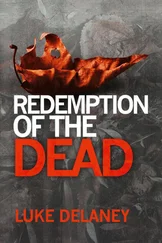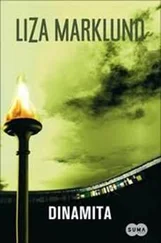‘Benny was a stubborn bastard,’ the archivist said, sitting down heavily behind his computer. ‘Worse than a mule, never gave up. Wrote more than anyone else I’ve come across, sometimes at the expense of quality. You know the type?’
He looked at Annika over the rim of his glasses, and she couldn’t help smiling.
‘Not to speak ill of the dead,’ the man went on, conducting a slow waltz on the keyboard with his index finger, ‘but we might as well be honest.’
He batted his eyelashes at her.
‘His death seems to have affected people here badly,’ Annika said tentatively.
Hans Blomberg sighed. ‘He was the star reporter, the darling of the management team, the union’s hate-figure, you know? The boy who dances into the newsroom after one job and cries, “Get me a picture byline, because tonight I’m immortal!”’
Annika burst out laughing. She had actually seen someone do precisely that. She thought it might have been Carl Wennergren, one of the former newsroom morons.
‘Well then, young lady, what exactly are you looking for?’
‘Benny’s series about terrorism, especially the article on F21 that was published the other day.’
The archivist looked up, his eyes twinkling. ‘Aha. So a nice young girl like you is interested in dangerous things?’
‘Dear Uncle Blomberg,’ Annika said, ‘I’m married and I’ve got two children.’
‘Yes, yes,’ he said. ‘Feminists… Printouts or cuttings?’
‘Copies, preferably, if it isn’t too much bother,’ Annika said.
The man groaned and got up again.
‘This business with computers,’ he said, ‘everything was going to get so much easier, but it hasn’t. Twice the work, that’s what computers have meant.’
He disappeared in amongst the cabinets, muttering ‘T… T… terrorism…’, opening drawers and huffing and puffing.
‘Here you are,’ he said a few moments later, triumphantly holding out a brown envelope. ‘Terrorism à la Ekland. You can sit over there. I’m here till six o’clock.’
Annika took the envelope, opening it with sweaty fingers as she went over to the desk he had indicated. Cuttings were infinitely superior to computer printouts. On screen all the headings were the same size, all articles the same size, every picture just as small. On the page the articles could live and breathe beneath noisy or subtle headlines: the typeface alone could tell her a lot about what the editors were hoping to achieve, what signals they wanted to send. The number of pictures, their layout and technical quality told her even more: how important the item was deemed to be, but also how important this picture or article was in the general torrent of news that day. The skills of an entire profession of editors had been wiped out by the electronic archive.
But she had serious stuff to study here.
The clips were arranged in date order, oldest at the front. The first text had been published at the end of April and provided tasty details from the history of Swedish terrorism, including the story of the inventor, Dr Martin Ekenberg from Töreboda, who really only succeeded with one invention: the letter bomb. She paused when she recognized several phrases she herself had used in articles on the same subject published just weeks before. She concluded drily that Ekland had evidently allowed his colleagues to inspire him in a very direct way.
She leafed through the pile of cuttings. A lot of it was old padding, but some of it was new to her. She read with growing interest about the fuss on the Norrbotten islands in the spring of 1987 when the military spent days searching for submarines and Spetsnaz brigades that had been landed on the skerries. A stubborn, fifteen-year-old rumour had it that a Russian frogman had been shot in the leg by a Swedish officer. The officer’s dog picked up a scent and started barking, and the officer dashed into some bushes, where bloody tracks were later found, leading to the water. Benny Ekland had been more interested in retelling the rumour as entertainingly as possible than in getting to the bottom of what had really happened. There was a brief quote from military command in Boden, to the effect that the atmosphere was completely different in the late eighties, that everyone misjudges things sometimes, even the Swedish military, and that it had never been ascertained that there had ever been any submarine encroachment in northern Swedish waters.
At the bottom of the pile was the article she was interested in, and it contained information entirely new to her.
Benny Ekland wrote that during the late sixties the old Lansen planes of the Norrbotten air defences were being switched for more modern Drakens, for search and reconnaissance purposes. The airbase was subjected to numerous acts of sabotage against the new planes, mostly in the form of matches being inserted in the planes’ pitot tubes. These tubes sat like small spears at the front of the planes, and were used to measure airspeed, pressure, and so on.
It was thought fairly obvious that left-wing groups from Luleå, probably Maoists, were responsible for the sabotage. No damage was ever done, and none of the match-wielders was ever caught, but the article cited anonymous sources in F21 claiming that these acts were the basis of the more serious attack that followed. The Maoists were believed to have discovered something that had catastrophic consequences.
After each flight, when the plane was on the tarmac, absorbent material had to be spread on the ground, or a stainless-steel container placed behind the plane. Not all of the fuel in the engine was burned off, so it had to be drained after the engine had stopped. On the evening of the attack, the night of 18 November 1969, the whole base had been involved in a large exercise. Afterwards the planes remained on the tarmac, and that was when the terrorists struck.
Instead of sticking the match in the pitot tube as usual, they lit it and tossed it into the bucket of surplus fuel behind the plane. The explosion was instant, and massive.
Ekland wrote that considering the air group’s lamentable history, it was easy to conclude that it was the local leftists who were behind this act of sabotage as well, even if it did have fatal consequences this time.
He writes like an idiot , Annika thought; but the theory was very interesting.
‘Can I have a copy of this one?’ she asked, holding up the article.
Not looking up from his screen, the archivist responded, ‘You found it readable then?’
‘Of course,’ Annika said, ‘I haven’t seen this information before. Might be worth looking into.’
‘The photocopier’s out by the stairs. If you give it a knock it might work.’
The man glided soundlessly through dark streets. The pain was under control, his body vibrated with energy. His thoughts echoed between the frozen walls, giving answers that were alien to him.
Luleå had shrunk over the years. He remembered the town as big and brash, full of self-confidence, rolling in glitter and commercialism.
Tonight the self-confidence was gone, way out of sight. It had probably never really existed. The place felt impotent. The main street had been closed to traffic and turned into a long, windswept playground, lined with sad little birch trees. This was where people were supposed to make their living; this was where they were meant to consume their way out of depression.
The curse of freedom , he thought. The bastard Renaissance man who woke up one morning in twelfth-century Florence and invented capitalism, sitting up in bed and realizing the possibilities for his own ego, realizing that the state was an organism that could be controlled and manipulated.
He sat down on a bench outside the library to let the worst of the morphine rush leave his body. He knew it wasn’t good to sit still in this sort of cold, but he didn’t care. He wanted to sit here and look at the cathedral, the building where he had founded his dynasty. The ugly extension on the corner of ‘nameless street’ was one of his old haunts. The lights were still on. There were probably meetings going on right now, just as there had been all those years ago.
Читать дальше












